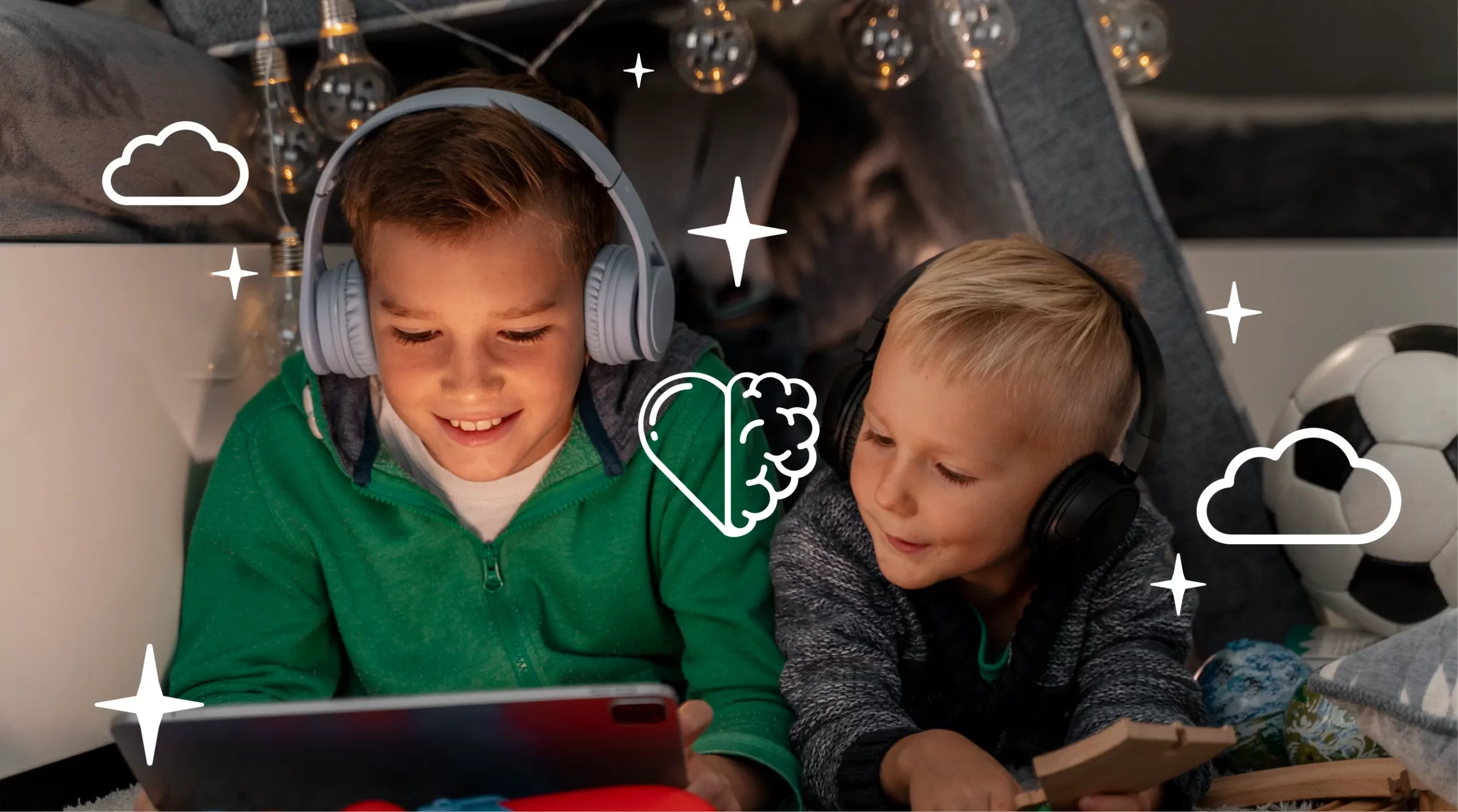Emotional intelligence, as one of the essential dimensions of human intelligence, encompasses abilities such as recognizing and managing emotions, understanding others’ feelings, successful social interaction, and adaptive skills. This intelligence can play a significant role in children’s daily lives and affect all aspects of their lives. Let’s explore how educational games can help enhance children’s emotional intelligence:
Recognition and Management of Emotions
Recognition and management of emotions are crucial skills for the healthy growth and development of children. This skill includes two main components:
Recognition of Emotions
Children need to be able to identify and understand various emotions in themselves and others. This recognition may include identifying basic emotions such as happiness, sadness, anger, as well as more complex emotions like fear, jealousy, etc. Recognizing emotions helps children improve their own emotional well-being and understand the emotions of others, thus enhancing their communication and interaction skills.
Emotional Management
Emotional management involves skills such as controlling negative emotions, expressing emotions constructively, and using effective strategies to manage stress and anxiety. Children need to learn how to cope with negative emotions like anger, fear, and anxiety in a positive manner. Emotional management helps children deal better with life’s challenges and adversities by using constructive ways to express their emotions.
Educational games focusing on recognition and management of emotions help children practice these skills. These games may include activities such as identifying emotions in characters, role-playing games, artistic and musical activities, and even problem-solving games, all of which allow children to explore their emotions in a safe and supportive environment and learn how to manage them constructively.

Games and Their Impact on Children’s Social Interaction
Enhancing Collaboration and Group Interaction: Many games, especially online multiplayer games, allow children to play cooperatively with others. These experiences strengthen their communication, collaboration, and group interaction skills.
Developing Communication Skills
Games that involve chat or voice communication among players teach children communication skills such as conversation, active listening, and sharing thoughts and feelings.
Teaching Cooperation and Respect for Others
Many games promote concepts such as cooperation, teamwork, and respect for others’ rights. These ethical principles are taught to children through gaming experiences.
Improving Problem-Solving and Decision-Making Skills
Many games, particularly strategic games, challenge children to solve various problems and issues. These experiences enhance their problem-solving and decision-making skills.
Boosting Confidence and Self-Perception
Success in games and progress through different levels build children’s confidence and give them a better perception of themselves.
In summary, educational games not only provide entertainment but also serve as valuable tools for children to develop emotional intelligence. With their diverse gameplay and engaging mechanics, these games offer an excellent platform for children to practice and enhance various emotional and social skills in a fun and interactive manner.

Adaptive Skills
Adaptive skills are a set of abilities that help individuals effectively navigate various situations and challenges. These skills are among the key components of emotional intelligence, crucial for everyday life, interpersonal relationships, and coping with different circumstances. Generally, adaptive skills include:
Flexibility
Flexibility refers to the ability to adapt and change in response to different situations and sudden changes. Flexible individuals can seek new solutions and quickly adapt to new circumstances.
Stress Management
This skill involves managing stress and anxiety effectively in high-pressure situations. Individuals with this skill can manage their stress and anxiety using various techniques and act intelligently under pressure.
Problem-Solving
Problem-solving is also considered a vital adaptive skill. Individuals with this skill can logically and effectively seek solutions to various challenges and deal effectively with complex situations.
Self-Awareness
This skill involves a precise understanding of oneself, including emotions, needs, strengths, and weaknesses. Self-aware individuals can understand their emotions and reactions well and take effective actions to improve and develop themselves.
Social Interaction
This skill refers to the ability to establish effective communication and interaction with others. Individuals with this skill can establish good communication with others in various situations, have healthy and effective relationships, and be recognized as active members in social interactions.

In conclusion, adaptive skills, strengthened through games, play a crucial role in everyday life. These skills enable individuals to perform optimally in the face of various challenges and changes and have healthy and effective relationships with others. Games, by creating diverse situations and challenges, encourage individuals to develop these skills and make practicing and strengthening them enjoyable and effective. Therefore, the use of educational and constructive games in children and adolescents can not only help develop their emotional intelligence but also play a significant role in shaping successful and resilient individuals in the future. Overall, these skills enable individuals to act as intelligent and emotionally capable individuals in facing challenges and different situations and achieve the best results.
VIT-RIN app provides a safe and secure space for children to enhance their adaptive skills through various games. These games are available for both single-player and multiplayer experiences, allowing children to enjoy themselves while simultaneously practicing these skills. Thus, VIT-RIN is not only a great place for improving these skills but also recognized as an entertaining and educational platform for children.



